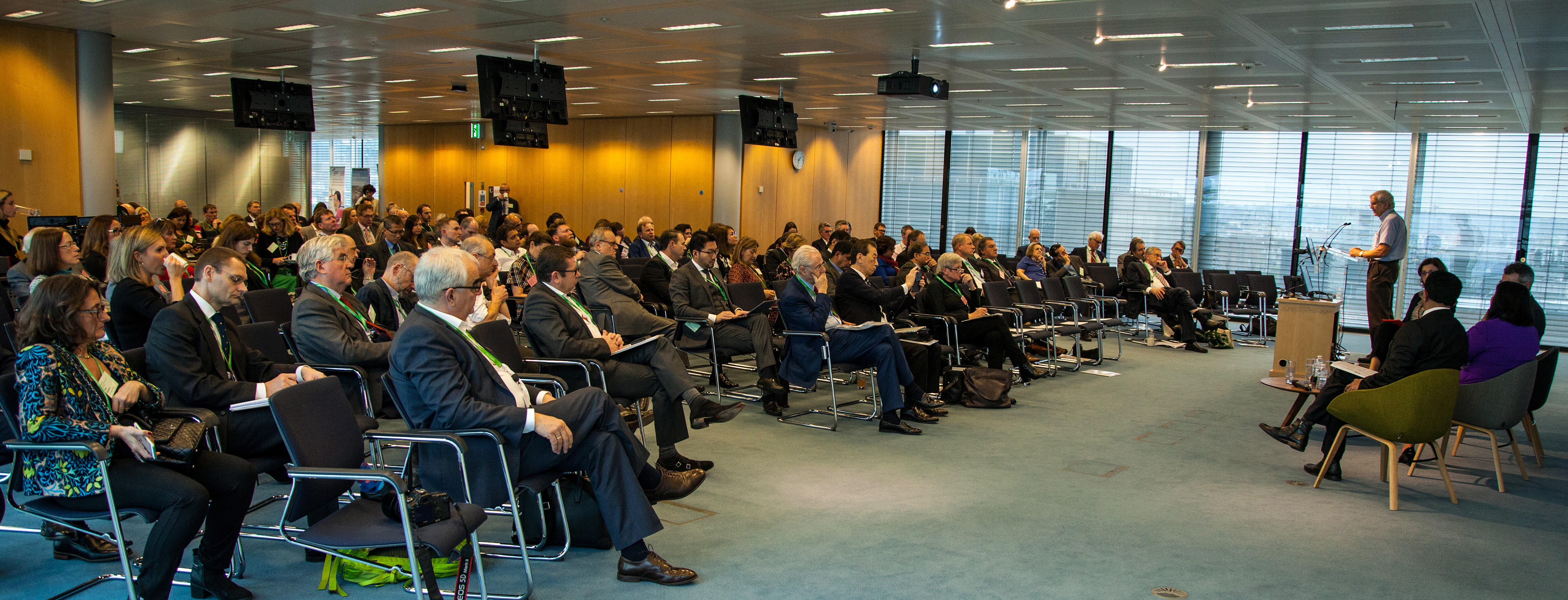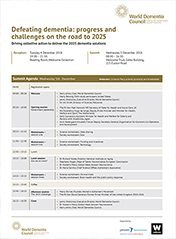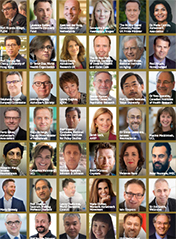-
Government leadership
Since the challenge issued by the 2013 London summit, many nations have substantially increased funding for dementia. Yet to reach the ambitious goals to develop a disease-modifying therapy, improve care and increase awareness by 2025, governments must ask afresh how it can further support science and civil society on this journey.
-
Are we on track?
National and intranational agencies such as the National Institute on Aging and the European Commission have led the way in directing government funding towards dementia research. What further coordination is needed to find solutions to barriers such as those around data sharing, earlier testing, better caregiving, and a better understanding of the brain?
-
The 2025 challenge
Reaching the 2025 goals requires the collective efforts of all within the global dementia community. Brought together by the summit were political leaders, innovators, academics, industry leaders, people with dementia and their care givers. Maria Shriver and David Cameron offered forward-looking optimism.
-
Data sharing
We live in an increasingly data-rich world, and the benefits that this brings to all walks of life have been widely recognized. While dementia research is no exception, challenges exist with regard to data sharing. These range from societal issues such as consent, privacy, and respectful use of data, to technical issues such as data harmonisation and interoperability, data visibility, and access control, to personal issues such as data ownership (researcher vs funder vs. donor).
-
Funding and incentives
Although governments, charities, and philanthropists have together increased dementia funding, dementia research remains underfunded relative to the size of the unmet need. Beyond the amount though, the bigger challenges surround the ‘right sort’ of funding.
-
Clinical trials
The cost in human and monetary resources for clinical trials in is enormous. The trials are typically longer and are technically more challenging than other therapeutic areas. These challenges become even greater as we follow the science and move towards trials focusing on people in increasingly earlier stages of the disease. What can be done to make dementia trials more effective, shorter, and less burdensome to patients?
-
Care
Even if the next five years, or the 15 after that, bring disease-modifying therapies, dementia will remain with us. In this respect, care for people with dementia should remain at the forefront of our efforts but how can we best achieve this? How can we collect better, and internationally-comparable, data to accelerate good care? And how do we better translate research into practice, not just in high income countries but in LMICs?
-
Technology
It will not be too long before our refrigerators and vacuum cleaners are digitally enabled, and most of our cars already are. How can this rapidly changing world of information technology be harnessed for the cause of dementia, both in terms of care and research? What role might digital biomarkers, connected digital medical records, AI, and autonomous algorithms play in improving outcomes?
-
Brain health and the public policy response
Although the number of people with dementia is rising relentlessly, some evidence suggests that the incidence has begun to fall in some countries and there is growing evidence around prevention. How can public attitudes to brain health be shifted so that “brain health” has similar public recognition to, for instance, “heart health”? What can we do to grow dementia-friendly societies, break the stigma of dementia, and provide better care where those who need it live?
Supporting organisations
- OECD: Improving the lives of people with dementia
- Women's Alzheimer's Movement: Changing the future for all minds




